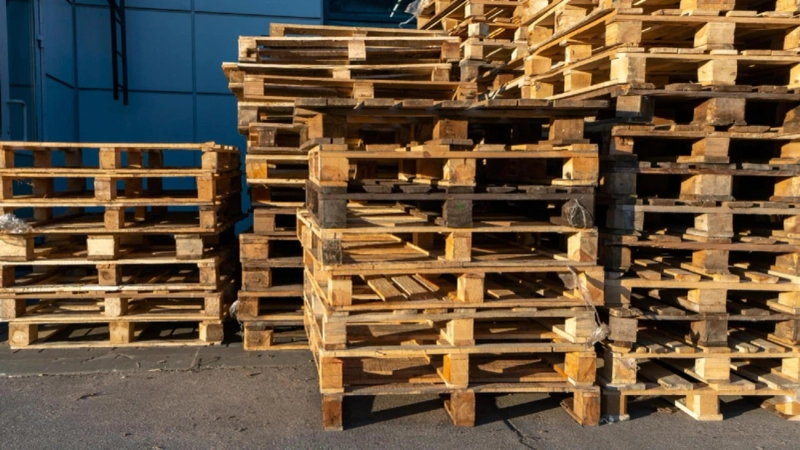In today's rapidly evolving world, sustainability has taken the world by storm in diverse sectors, including packaging and supply chain management. As organizations decrease their environmental footprint, they approach ingenious resolutions to achieve their sustainability objectives. One solution that has gained significant attention is using recycled or used pallets in Dublin in packaging and supply chain practices. These natural platforms are vital in decreasing trash, preserving resources, and fostering a greener future.
Purpose of Pallets in Supply Chains
Before delving into the sustainable aspects, let's first understand the significance of pallets in supply chains. Pallets are flat structures used to support goods during storage and transportation.
They are essential for efficient handling, loading, and unloading of products. They help optimize space utilization in warehouses, streamline logistical operations, and prevent damage to goods during transit.
Sustainability Challenges in Packaging and Supply Chains
Traditional supply chain practices often involve using single-use materials, such as wooden pallets discarded after a single trip. This approach contributes to deforestation, resource depletion, and increased waste generation. Furthermore, the production and disposal of these pallets add to greenhouse gas emissions and environmental pollution.
In this context, adopting sustainable practices, including employing used pallet racking, emerges as a responsible choice for companies seeking to reduce their environmental impact.
The Environmental Benefits of Recycled Pallets
Here are the ecological benefits of recycled pallets.
Resource Conservation: Recycled or used pallets are fabricated using reclaimed wood from previously used pallets. It reduces the demand for new timber, minimizing deforestation and conserving precious forest ecosystems.Energy Efficiency: Producing new pallets requires significant energy inputs, from logging and processing wood to manufacturing and transporting the finished product. Using recycled or used pallets significantly reduces the energy consumption associated with their production.Waste Reduction: By repurposing used pallets, companies contribute to reducing waste in landfills. It addresses the growing concern about waste accumulation and its adverse environmental effects.Emission Reduction: The production of new pallets emits greenhouse gasses and contributes to air pollution. Recycled pallets have a lower carbon footprint, circumventing the energy-intensive processes of producing new ones.Extended Lifespan: Recycled pallets are often reinforced and repaired before reuse, extending their lifespan. This practice further decreases the frequency of pallet replacement, reducing overall waste generation.Economic Benefits and Business Impact
Sustainability isn't just about environmental responsibility; it also makes good business sense. Incorporating used pallets into supply chain practices can yield several economic benefits:
Cost Savings: Recycled pallets are generally more cost-effective than new ones. Companies can acquire them at a lower cost, thereby reducing packaging expenses.Improved Reputation: As sustainability becomes a core value for consumers, businesses that adopt eco-friendly practices gain a competitive edge and an enhanced brand image.Regulatory Compliance: Many regions have regulations and standards to promote sustainable practices. Utilizing recycled or used pallet racking helps companies meet these requirements and avoid potential penalties.Supply Chain Resilience: Recycled pallets ensure a stable supply, as they are readily available from pallet recycling facilities. It reduces the risk of disruptions caused by material shortages.Challenges and Considerations
While recycled or used pallet racking offers numerous benefits, certain challenges must be addressed. For instance, companies must ensure that their recycled pallets meet quality and safety standards. Pallets that are poorly repaired or improperly maintained could lead to accidents or damage to goods.
Additionally, education and awareness play a crucial role. Businesses need to comprehend the advantages of recycled pallets and make informed decisions based on their unique supply chain needs.
Conclusion
In the quest for a more sustainable future, businesses across the globe are recognizing the significance of every step in the supply chain. Using recycled pallets is a prime example of how a seemingly small change can positively impact the environment and a company's bottom line. By conserving resources, reducing waste, and minimizing emissions, recycled or used pallets in Dublin exemplify the power of innovative solutions to drive sustainable packaging and supply chain practices forward. As we move towards a greener economy, embracing such practices is not just a choice but a responsibility for the well-being of our planet and future generations.


